Oscars 2019: The most controversial Academy Awards ever?
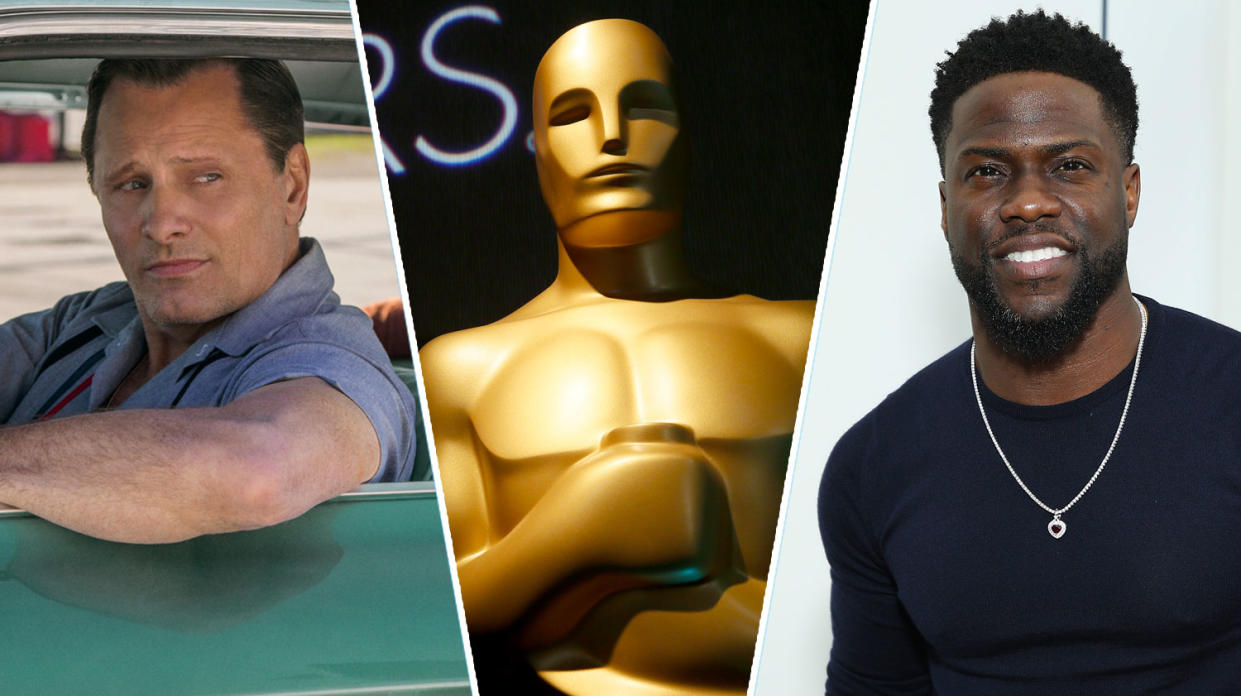
It was only 2017 when The Academy showed its knack for tripping itself up. Who can forget that epic Best Picture flub, when Warren Beatty and Faye Dunaway announced the WRONG winner? The top prize was handed to La La Land, before its producer Jordan Horowitz took the reins and informed the crowd – and watching millions – that there’d been a terrible mistake, and in fact Moonlight had won Best Picture.
It was just the beginning.
This year, the Academy has turned the art of the cock-up into something more elaborate – the art of shooting itself in the foot. The procession of slip ups, miscalculations and U-turns in the run-up to this year’s ceremony – some of the Academy’s own making, some not – means it could be the most controversial ever. And we don’t even know who the winners are yet.
It’s been a rocky road to Sunday night’s Oscars.
The unpopular ‘popular film’ award
It started with a tweet. “Change is coming to the Oscars” declared the Academy last summer as it announced two initiatives to boost its flagging TV ratings: the show would be shorter (three hours) and a new award category – Achievement In Popular Film.
Change is coming to the #Oscars. Here's what you need to know:
– A new category is being designed around achievement in popular film.
– We've set an earlier airdate for 2020: mark your calendars for February 9.
– We're planning a more globally accessible, three-hour telecast. pic.twitter.com/oKTwjV1Qv9— The Academy (@TheAcademy) August 8, 2018
How it would work wasn’t that clear but nobody cared, because the idea went down like the proverbial lead balloon. It took a battering from critics, journalists, and film makers so that, less than a month later, the brakes were on and the new award was no more.
The film business passed away today with the announcement of the “popular” film Oscar. It had been in poor health for a number of years. It is survived by sequels, tent-poles, and vertical integration.
— Rob Lowe (@RobLowe) August 8, 2018
Host? What host?
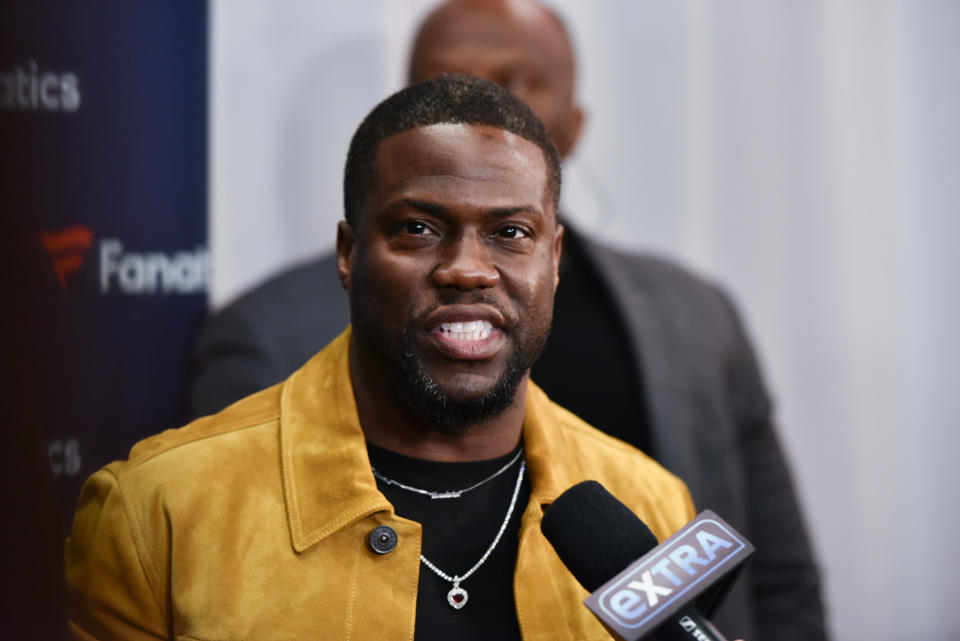
Jumanji: Welcome to the Jungle star Kevin Hart announced in early December that he would be hosting the ceremony, promising to make it “a special one.” But, after some homophobic tweets from the past re-surfaced, he stepped down – only to reportedly re-consider his decision. It was short-lived and hardly a day had passed when he officially ruled himself out.
The waters were further muddied by Dwayne Johnson’s assertion that he had been the first choice for the job but his work schedule had made it impossible (although, confusingly, he said it was the Jumanji sequel – also starring Hart – that caused the schedule clash).
So the job went to… nobody. The producers opted for different celebrities hosting segments throughout the show. The last time that happened was in 1989, when the evening started with a memorable – not in a good way – 11-minute Snow White musical number featuring Rob Lowe. It’s considered one of the worst Oscar shows ever.
Awards in the ad breaks. Or not.
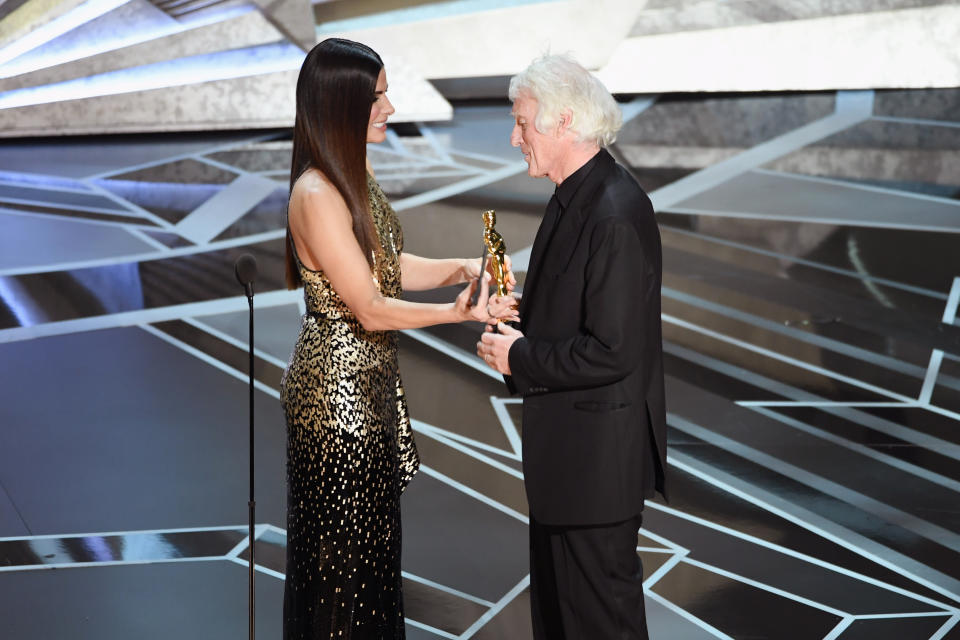
With all the songs back on the running order, there had to be another way to keep the evening short. So the Academy decided that four Oscars – cinematography, make-up and hairstyling, film editing and live action short – would be presented during the commercial breaks and edits of the winning moments shown later. This produced the biggest backlash of the lot.
Directors including Alfonso Cuaron, Martin Scorsese, Spike Lee and Quentin Tarantino signed an open letter criticising the move. George Clooney, Brad Pitt and Robert De Niro added their names. The result? Another Academy U-turn. All awards would be presented during the live show.
Bohemian Rhapsody caught in a landslide, no escape from reality
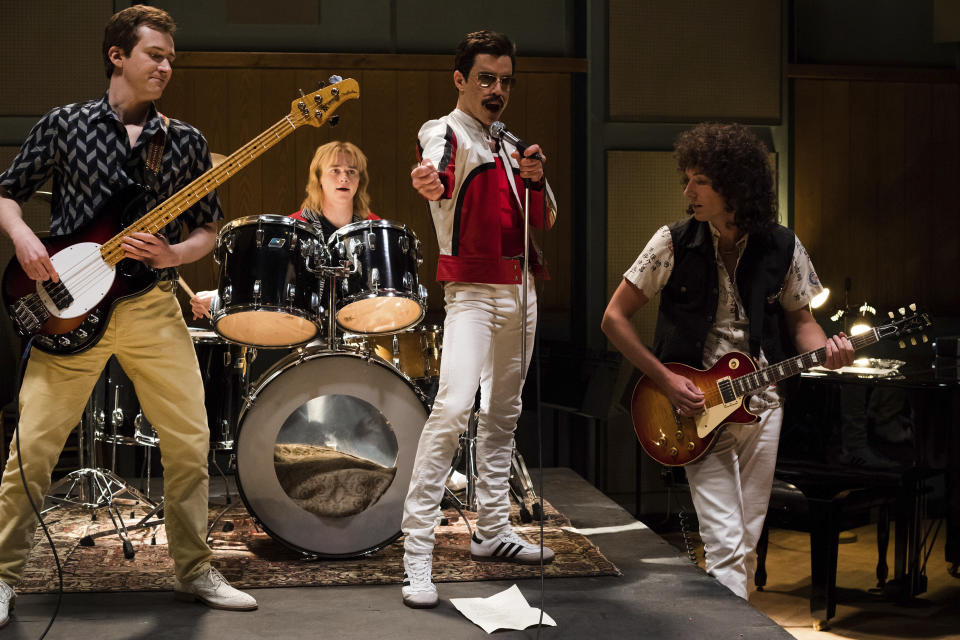
Best Picture contender Bohemian Rhapsody was fraught with problems almost from the get-go. Director Bryan Singer was fired when he failed to return after a break, with Dexter Fletcher finishing the movie. But Singer was still credited as the director, the cause of much unease over the film’s awards success. Accused of multiple instances of sexual misconduct, he is also being sued for allegedly raping a 17-year-old boy and further allegations of historic sexual misconduct surfaced after Bohemian Rhapsody received its five Oscar nominations. He denies all charges.
Complaints that the movie has misrepresented Freddie Mercury’s sexuality have never gone away either, but none of this seems to have stopped the Bohemian bandwagon, with Rami Malek looking increasingly likely to take the Best Actor trophy.
Green Book problems
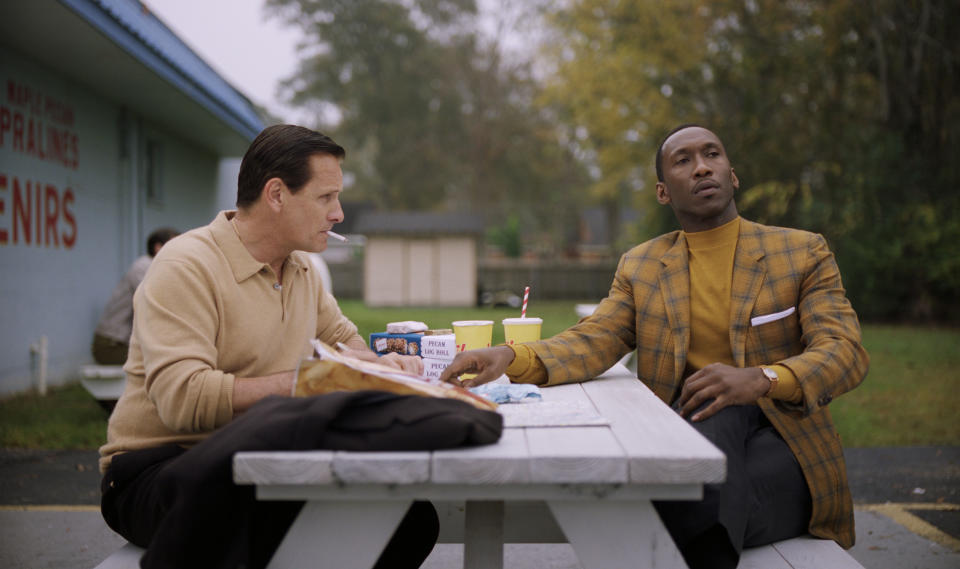
Regarded as a serious contender for Best Picture this year, Green Book has been plagued by controversy. Viggo Mortensen got things rolling by using a racial slur in a panel discussion. He quickly apologised. Co-star Mahershala Ali said the word was “always hurtful” but accepted the apology.
The film’s historical accuracy was next in the firing line, with the family of Don Shirley (played by Ali) criticising the portrayal of his friendship with Tony Vallelonga (Mortensen’s character) and pointing out they were never consulted about the movie. An anti-Muslim tweet from co-writer Nick Vallelonga re-emerged and finally director Peter Farrelly had to say sorry after reports of a “joke” he played on the cast of his films in the 90s. It involved him flashing his penis.
Out of tune
That need to shorten the event reared its head again the decision that only two of this year’s Oscar-nominated original songs would be performed live. ‘All The Stars’ from Black Panther and ‘Shallow’ from A Star Is Born were the chosen pair.
Cue an outpouring of dismay on Twitter so that – a week later – the Academy backtracked with ‘I’ll Fight’ from documentary RBG and The Place Where Lost Things Go from Mary Poppins Returns put on the list.
But wait. What about When A Cowboy Trades His Spurs from The Ballad Of Buster Scruggs? That was added 24 hours later. A full house, then.
Well, it was was until Kendrick Lamar and SZA pulled out of performing their Black Panther tune due to “logistics and timing” in the week before the show.
Where are the women directors?
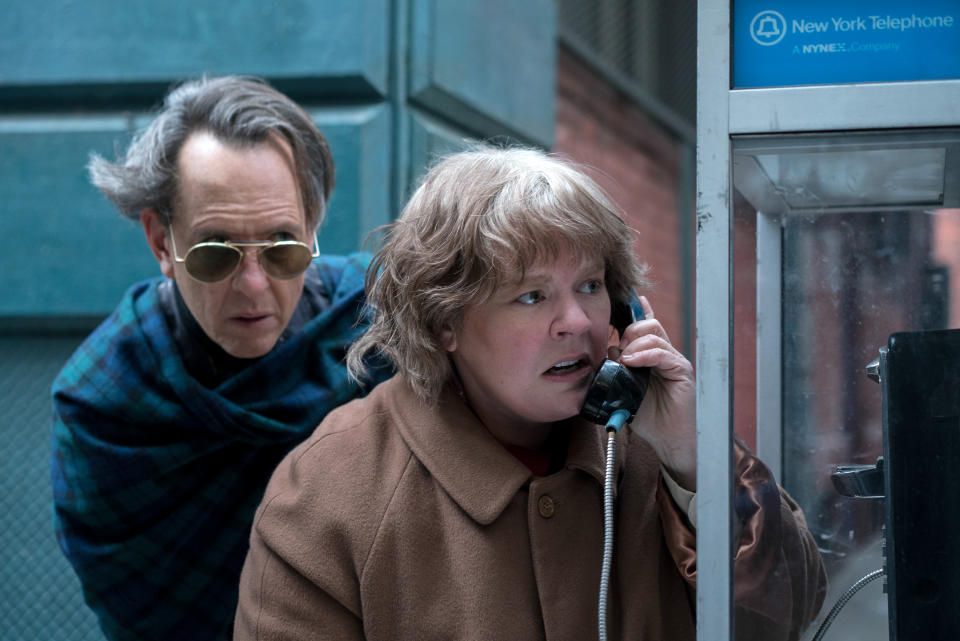
#OscarsSoMale has been gathering momentum in recent weeks. This year’s Best Director category is all-male territory, although Marielle Heller was seen as a strong contender for Can You Ever Forgive Me. In the end, it landed three other nominations, but there was nothing for her.
Last year’s nomination for Greta Gerwig for Lady Bird was the first in eight years for a woman director but, despite high hopes, she lost out to Guillermo del Toro. In fact, only one woman has ever won the coveted trophy – Kathryn Bigelow in 2010 for The Hurt Locker. She’s one of the grand total of five women nominees in the history of the award.

The Netflix factor
Alfonso Cuaron’s Netflix film, Roma, has been showered with praise and is currently front runner for the Best Picture gong. It’s entirely in Spanish and Mixtec, which would usually consign it to the Best Foreign Language category, where it’s also nominated. Yet the likes of Pawel Pawlikowski’s Cold War and Hirokazu Kore-eda’s Shoplifters aren’t up for the top prize. Go figure.
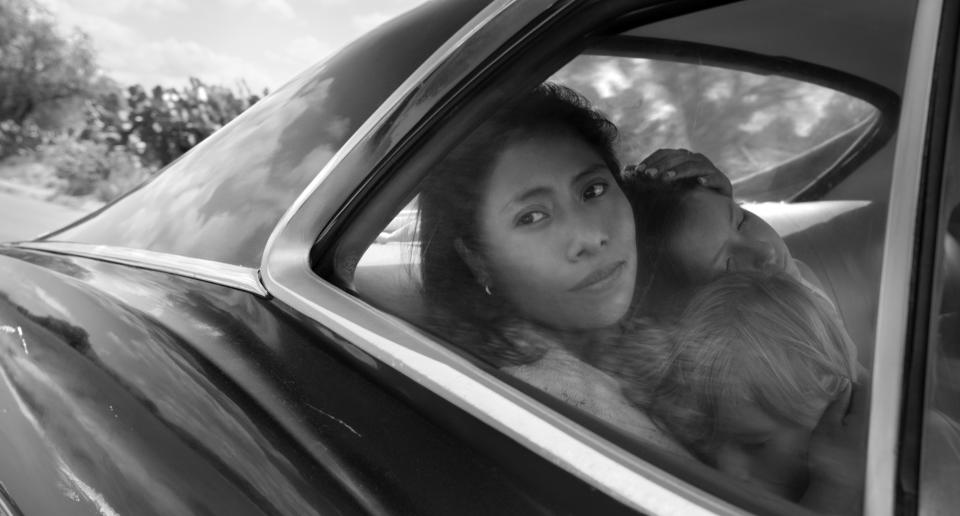
Roma’s nomination raised eyebrows because it was only screened in selected cinemas before arriving on Netflix, but nothing seems to be getting in the way of the streaming giant’s campaign to win Best Picture at its first attempt. An extensive billboard campaign, Roma events and a luxurious coffee table book about the film are just some of the tactics.
While Netflix hasn’t revealed how much it is spending, estimates range between $10 million and $20 million (£7.6 million-£15.3 million). If it wins, it won’t just be a first for Netflix and potentially mark a seismic shift in the film world, it’ll also be the first foreign language film ever to take Best Picture.
Cuaron himself has called the campaign trail, and the inherent muck-slinging involved, “ridiculous”.
“This industry has turned everything into something a bit more vicious; or even very much so,” he told Deadline. “The sad thing is it has become almost like a projection of how political campaigns are nowadays. Rather than politicians showing a vision, it’s about throwing dirt to the opponent. So rather than strengthening the values—and I’m not talking moral values, but the artistic merits of a film and the influence it may be having—it’s about trying to push the others down. I find that very sad. And I hope there’s a way—though I’m not sure there is—that it can be regulated by the Academy. I don’t know how.”
The 91st Academy Awards ceremony takes place on Sunday, 24 February 2019 and is broadcast in the UK on Sky Cinema Premiere.
Read more
Inside the Oscars goody bag
Why did Harry Potter never win any Oscars?
The most memorable Oscar losers caught on camera

 Yahoo Movies
Yahoo Movies 
